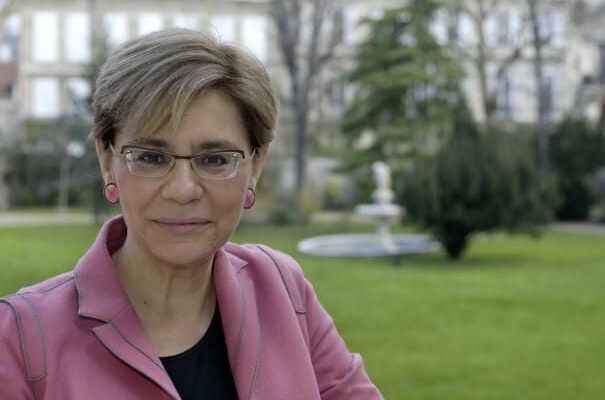Michèle Pappalardo, enarque, former rapporteur for the Court of Auditors, was appointed president of the ISR (Socially Responsible Investment) label committee with a mission: to overhaul it so that it truly keeps its promises.
L’Express: Why was the ISR label reformed?
Michèle Pappalardo: It’s very simple: the ISR label benchmark dates back to its creation, in 2016, following COP 21 which took place in Paris the previous year. It was an important milestone then, but in terms of sustainable finance, it is almost prehistory. It was time to completely rethink it, knowing that it will then have to be amended at least every three years, as sustainable finance progresses, both in terms of requirements and transparency.
What does this new version consist of?
We took eighteen months to define a mechanism that effectively directs savings towards an economy that takes into account environmental, social and governance (ESG) issues. It was a matter of making a turn of the screw, while ensuring that the system remains accessible to management companies wishing to achieve this level of requirements. For example, the previous label provided that 80% of the best students could join a labeled fund; it will now be 70%. The objective was not to overly penalize very thematic funds, whose universe is already very limited and which are often virtuous.
We also asked that 15% of companies financed by SRI funds present a transition plan consistent with the Paris agreements. And I hope that by 2026 the updated version of the label will significantly increase this percentage. In the meantime, this is a new practice that we are trying to instill.
Then, in terms of governance, we have introduced voting obligations at general meetings: management companies will thus defend their convictions vis-à-vis companies. They will fully play their role as a societal and environmental stimulus.
You also put a lot of exclusions in place. Is this a way of responding to the numerous criticisms of the previous label?
Obviously. Exclusion has been a central element of our redesign work. From now on, SRI-labeled funds can no longer finance tobacco or coal, but neither can new fossil fuel operations. The same goes for companies located in tax havens. The current label goes even further than the proposals we made in committee!
It will take a little time for this system to be put in place, but new funds wishing to be certified have already been affected since March 1. As for funds that wish to keep their label, they have until January 1, 2025 to comply with these new rules. They will then be audited throughout the year.
What’s the next step ?
Before getting back to work on the ISR label in 2026, we will focus over the next eighteen months on the creation of a certification for private equity (investment in the capital of unlisted companies), as we have already done for real estate. With these three labels, updated regularly, the Paris market will truly become exemplary.
An article from the special report “Responsible Investments”, published in L’Express on May 30.
